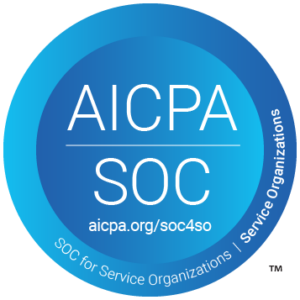ChatGPT and Higher Education
One thing is for certain: the emergence of ChatGPT accelerated conversation around the role of AI in higher education. While Institutions of Higher Education (IHEs) have already begun to embrace the use of AI over the last decade, leaders are asking important questions about its impact on higher learning.
This comes after a global pandemic forced a seismic shift in our approach to learning. While fewer students enrolled at colleges and universities, the shift to remote learning led to new challenges in supporting them. Experts anticipated an enrollment cliff on the heels of the 2008 recession, and COVID-19 only made matters worse.
In a way, ChatGPT opened a window of opportunity for IHEs by igniting the discussion. With down enrollment, increased costs, and an evolving student demographic, AI can help to scale support, teaching, operations, and more. At the same time, some people have concerns that AI could be a stumbling block for learners who might be tempted to use it unethically.
At Mainstay, we have an optimistic perspective. We’ve seen first-hand the power of harnessing AI to improve student outcomes, and we agree wholeheartedly that we should exercise caution when it comes to students (that’s why we’ve partnered with leading researchers to understand our impact).
3 ways AI improves student outcomes
With so much change happening in higher education, student support has never been more important. For Mainstay, the rise of AI made it possible to deliver tailored, empathetic, and context-driven interventions over proactive text messages. Because we leveraged AI, we’re also able to respond to students and keep the conversation going. By combining insights from research with intentionally designed conversations, we’re able to achieve a more holistic approach to student support.
ChatGPT is built on GPT-3.5 and GPT-4, large language models pre-trained to generate human-like text in response to prompts. And while Mainstay and ChatGPT are both powered by AI, the platforms are used in somewhat opposite ways. ChatGPT reacts to prompts the way a human might, while Mainstay focuses on proactive student support.
- Proactive Student Support
Mainstay certainly can (and does) respond 24/7 to student questions, but we’ve found that the key to student success is proactive engagement. By delivering relevant information right when it’s needed, we eliminate challenges before they occur, and spark student progress that drives positive outcomes. - Expertise and Accuracy
Mainstay’s AI is fine-tuned by our experts to ensure that answers are accurate and relevant for each of our partners. When students ask questions about new topics, our AI won’t generate an answer but instead we’ll loop-in a human to provide accurate information and expand the AI’s knowledge base at the same time. - Supporting Underserved Students
All too often, those who need support the most are the ones who go without it. By design, Mainstay uses AI to improve access and equity for all students, which bears an outsized impact on first-generation, minority, low-income, and non-traditional students.
How Mainstay can use GPT-4 for even better student outcomes
Just as AI presented an opportunity for Mainstay to reach and support more students, generative AI (like GPT-4) offers the same potential. With that in mind, we’re exploring what’s possible when we combine GPT-4 with the insights gleaned from work with our research partners, such as Dr. David Yaeger at the University of Texas at Austin. It’s possible that with generative AI, IHE’s may be able to support students more effectively in considerably less time, providing a better experience for learners and educators alike.
For instance, imagine a proactive bot trained to check-in with students over text message the same way a couneslor or advisor might, capable of responding to students’ emotional states and motivations in a supportive, empathetic manner. This approach would seek to combine the power of generative AI with human expertise, ensuring that answers are always accurate, helpful, and tailored to the needs of each student.
AI has already begun to revolutionize student engagement, and now it’s critical that we work to understand the most ethical applications of AI to better serve students. Mainstay’s proactive conversational technology, informed by behavioral science, offers a more natural and effective approach to supporting students in higher education, and we’ll continue leveraging AI to improve student outcomes.


